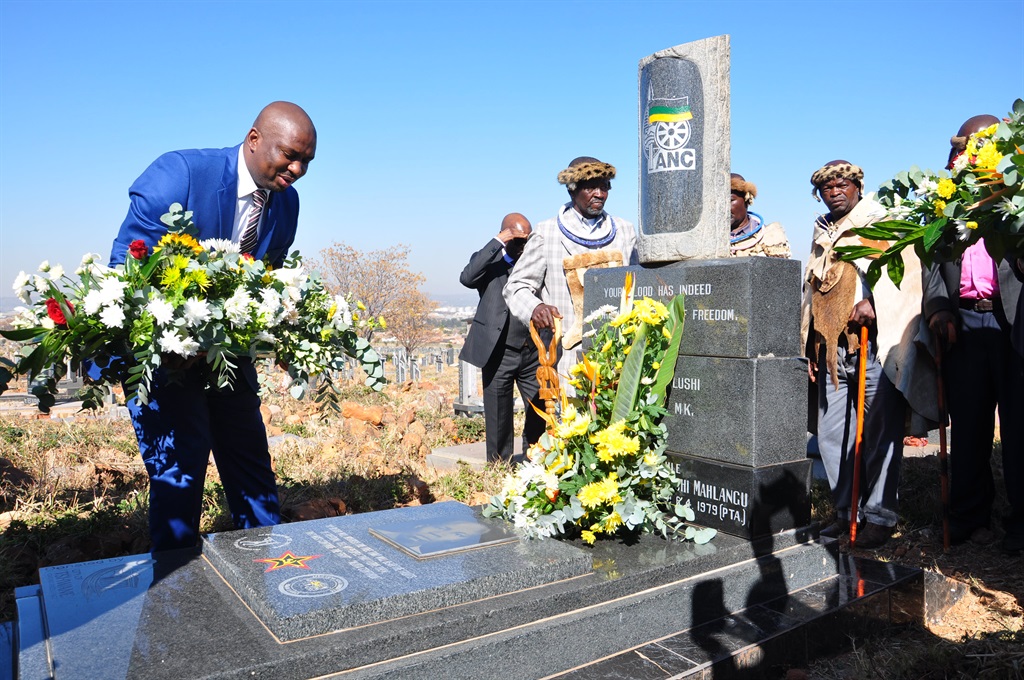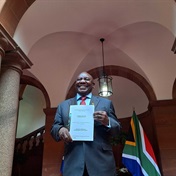
The political ethos, mantra and creed of realising education as a commodity of necessity is firmly dedicated to the young martyrs of the peoples struggle, and in particular remembrance that in a few days time we will commemorate the 39th year of the execution of Solomon Kalushi Mahlangu.
When Mahlangu was taken to be hanged at the gallows of the then Pretoria Central Prison (Kgosi Mampuru II Correctional Centre), he refused to be handcuffed, insisting that he wanted to die like a soldier.
Even in the face of death, he was a defier against injustice, he walked the 52 steps to the gallows with the colours of Black, Green and Yellow running through his veins … he is known as Amadelakufa! Comrade Solomon Mahlangu was amongst 134 political prisoners executed by the apartheid government at Pretoria Central Prison (between 1961 and 1989); his age of 23 years held no bearing on his faith.
On the morning of April 6 1979, Mahlangu, a heroic son of our people and dedicated member of the African National Congress was executed by the white minority racist regime.
Mahlangu has been instructive that our youth should continue to reap the fruits of the tree which his death has borne.
The history of South Africa is one besieged with the most acute social fault-lines, of having the twin dangers of poverty and unemployment, which negatively affect our youth and students.
We remind our youth and students that during his inaugural, though seminal State of the Nation address, President Cyril Ramaphosa indicated “our most grave and most pressing challenge is youth unemployment”. Fortunately, South Africa is a giant social laboratory, which has produced multifaceted successes, through the ANC, the peoples’ movement.
The current conjuncture and acumen of our societal leadership, represented by President Ramaphosa, has imbued a conviction in all our people that their interests and that of the grievance of the youth is paramount and of necessary consequence to our of government.
The question of free higher education has correctly directed a twin impulse of legitimate societal leadership and an active citizenry, which feeds on each other to propel society to greater heights.
The question of free education has its roots embedded in a shared prosperity and social justice.
The decisive political decision by our president to immediately implement the free education for the poor students is part of a historical thesis of transforming and tilting the apartheid state colossus and orient it towards a human people’s project.
The singular objective to avail more than R57 billion for our free higher education is central to the task of abolishing a major source of social conflict, which is unemployment.
A caring government, such as the one led by President Ramaphosa, would ordinarily use redistributive mechanisms of the fiscus to provide a safety net for the poor, and his commitment to our needy students is hugely and commonly known.
We have been firmly committed that all needy students – more than 985 000 of them – enrolled since last year at universities, will be funded comprehensively.
The antithesis to freedom from poverty and prosperity is youth unemployment.
According to Statistics South Africa, youth aged 15 to 34 years accounted for almost 20 million of the working age population in the third quarter of 2016; however only 6.2 million were employed.
The situation is even worse for youth aged 15 to 24. These age groups are expected to either attend school or engage in employment. However, their unemployment rate in the third quarter of 2016 was 54.2%, which was more than three times higher than the unemployment rate for adults aged 35 to 64 years (17.5%).
Despite soaring levels of investment in skills development over the last decade, South Africa still suffers from a lack in the supply of skills and the exclusion of over 3.1 million young people aged 15 to 24 years whom are not in employment, education or training.
The final arbiter on youth unemployment is a pro-poor government, seized with skills development.
A direct consequence of our caring government has been a skills-architecture endowed with 50 TVET colleges, 26 universities, and 9 CET colleges, established in every province; augmented by 21 Setas.
Linked to the existing education architecture is the expansion of the Sol Plaatje University in Kimberley, Northern Cape Province, and the University of Mpumalanga in Mbombela.
Both universities opened their doors to their third intake of students during the 2016 academic year, enrolling 703 students at Sol Plaatje and 1 261 at Mpumalanga.
With regard to their infrastructure programme, an amount of approximately R2.9 billion will be made available over the Medium Term Expenditure Framework for the next phase of development and expansion at both institutions.
We must seek to address the racist orientation of the question posed many decades back by the direct forebears of some amongst the opposition benches, who posed the question “what is the use of teaching a Bantu child mathematics, when it cannot use it in practice?”
Hendrik Verwoerd would have felt completely humiliated had he known that in a democratic South Africa, more than 12 000 African chartered accountants have demonstrated that no cognitive limitations exists as a result of race classification.
In fact, an increasing number of the more than 58 000 graduates in Science, Engineering and Technology are Black Africans.
Antonio Gramsci has been instructive when he said “to tell the truth is revolutionary!”
Notably, the number of research masters and doctoral (PhD) graduates increased at a higher rate than the overall number of graduates, which is critical because it is on these post-graduates that the country depends for its future academics, researchers and other leaders within knowledge-intensive professions.
The number of research masters graduates increased by over 20% to 7 317 graduates.
We acknowledge that as sons and daughters of Nelson Mandela, we are the carriers of the burden of history.
The National Development Plan (NDP) has directed us to realise 1.6 million in higher education by 2030. The mirror-image of the South African youth and student-chapter is President Ramaphosa.
The launching of the Youth Employment Service (YES), augmented by existing instruments on youth skills such as the National Youth Service Programme and the Youth Employment Accord, as well as the National Youth Wage Subsidy, seeks to be the concentric circles to confront youth joblessness.
We are therefore not surprised nor startled that Stats SA has just announced that for the last quarter of 2017, new jobs to the tune of 81 000 have been created.
Stats SA data from the second quarter of 2017 indicated that only 7.4% of graduates were unemployed, in stark contrast to 27.9% unemployment found amongst youth with only a matric qualification.
This undeniable and authoritative fact buttresses the significance of increasing post school education and training.
The current conjuncture, correctly called a new dawn of positivity, presents an opportunity for a people’s pro-poor government to radically shift the socio-economic trajectory to the poor and the working class.
President Ramaphosa’s new-dawn serves as a repository for the restoration of a new value-system, revival of class-consciousness and resilience of a people-centered people-caring government.
This is an epoch we are to bear witness to the occasion of having 1 million youth as students in higher education, supplemented by undermining youth hopelessness through the creating of 1 million youth jobs and skills possibilities.
We have been told to tell the truth is revolutionary!
Comrade Solomon Mahlangu, your blood is nourishing the fruits of the tree which borne freedom … your people know that you loved them, and we are continuing the fight to make poverty poorer, and to arm our youth with the weapons of skills-amelioration.
• Alvin Botes is ANC National Executive Committee (NEC) & Member of the South African Parliament




 Publications
Publications
 Partners
Partners








